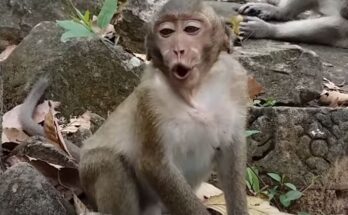Monkeys, our close animal relatives, lead lives filled with surprising complexity, yet they face daily struggles that often go unnoticed. Their silent suffering stems from a range of challenges, both natural and human-made, that threaten their well-being and survival.
In the wild, monkeys face harsh environmental conditions, including food scarcity, habitat destruction, and the constant threat of predators. As their natural habitats are increasingly encroached upon by human activities like deforestation and urbanization, many species are left with dwindling resources and shrinking territories. These changes force monkeys into fragmented habitats, making it harder to find food, maintain social bonds, and raise their young.
Human interaction adds further stress to their lives. In many parts of the world, monkeys are captured for the illegal pet trade, used in scientific experiments, or hunted for their meat. Even in urban settings, where monkeys are often seen scavenging for food, they face dangers such as car accidents, electrocution from power lines, and negative interactions with humans. The lure of readily available food often leads monkeys into conflict with people, where they are viewed as pests rather than sentient beings.
Social challenges also contribute to their silent suffering. Monkeys are highly social animals, and disruptions in their groups—whether due to habitat loss, poaching, or injury—can cause immense psychological and emotional stress. Young monkeys orphaned by poaching or environmental disasters often struggle to survive without the guidance and protection of their mothers.
To address these challenges, conservation efforts and education are critical. By protecting their habitats, enforcing stricter wildlife trade regulations, and fostering coexistence between humans and monkeys, we can help reduce the suffering these intelligent creatures endure daily. Their plight is a reminder of the interconnectedness of all life and the need to act responsibly to ensure a harmonious future.
4o


